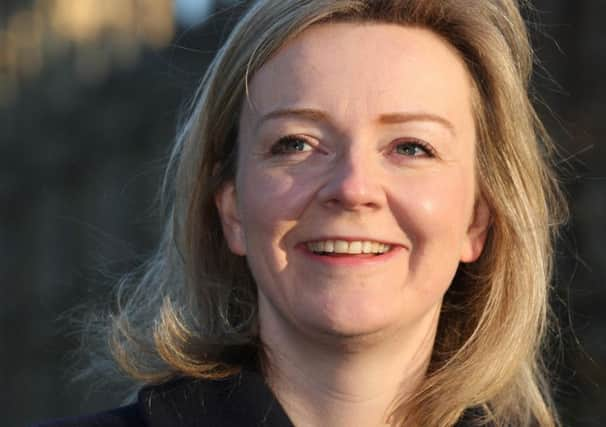Truss urges food producers to seek special status


Speaking at the Northern Farming Conference in Hexham, the Secretary of State said she wanted her department to receive more applications to legally protect the region’s unique homegrown food and drink.
More than 60 foods are protected in the UK, including Yorkshire’s Forced Rhubarb and Wensleydale cheese but there are very few other examples in the North of the country.
Advertisement
Hide AdAdvertisement
Hide AdThe Protected Food Name scheme highlights regional and traditional foods whose authenticity and origin can be guaranteed. It means a named food or drink registered at a European level is given legal protection against imitation across the EU.
Mrs Truss said: “Given the amazing quality of food on offer in this part of England, I would love to see more producers coming forward to apply for this status.
“Protected food name status provides a huge opportunity to promote high-quality local food, which is part of our identity and which consumers increasingly love. My department is very willing to help with applications.”
The Environment Secretary also called for more northern food brands to benefit from exporting their produce, citing how four per cent of sales of Yorkshire Wensleydale now came from abroad, with the cranberry variety selling well in America.
Advertisement
Hide AdAdvertisement
Hide Ad“Local roots can lead to a global reach,” Mrs Truss said. “Cheese producers like these show that the export market is not just for big companies.”
The Norfolk MP addressed other agricultural issues at the conference, held at Hexham Auction Mart by businesses and industry groups.
She said some people dismissed farming as a “sunset industry”, but she argued that the opposite was true: “If we look at the contribution of food and farming to the economy it generates £110bn every year. One in eight people in our country is employed in food and farming. It our largest manufacturer, bigger than cars and aerospace put together and one of things that I am keen to do as Secretary of State is to get the message loud and clear across our government and across our country, just how big and vital it is.”
Having taken up her post at the Department for the Environment, Food and Rural Affairs in July, Mrs Truss said she had met with British supermarkets and wanted to again to discuss the management of contracts with farmers and the better labelling of British food products.
Advertisement
Hide AdAdvertisement
Hide AdShe told The Yorkshire Post she recognised it was a difficult time for dairy farmers, many of whom are receiving prices for their milk that does not cover production costs. “With the phasing out of quotas, there is certainly more exposure to global market prices. We are keen to look at what we can do working with the industry.”
She added that the future was bright for the industry with rising global demand for dairy products and forecasts for a recovery of the milk price later next year.
The overall tone at the conference was one of optimism, with Allan Wilkinson, HSBC bank’s head of agriculture, saying that marketplace volatility could be overcome with the right attitude and a well structured business.